See also
- Poncelet Prize, a mathematics prize by the French Academy of Sciences
- Poncelet's closure theorem, mathematics
- Poncelet–Steiner theorem, mathematics and geometry.
The Poncelet is a unit of power formerly used in France.
Poncelet may also refer to:
Metis or Métis may refer to:
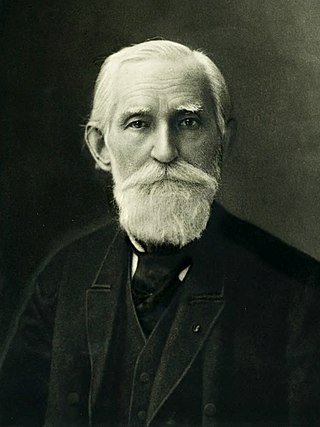
Pafnuty Lvovich Chebyshev was a Russian mathematician and considered to be the founding father of Russian mathematics.
Torricelli may refer to:
Jacobi may refer to:
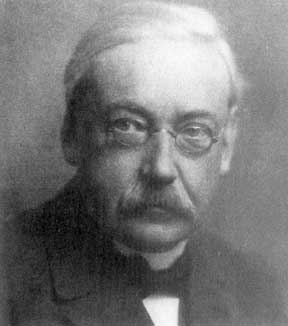
Erik Ivar Fredholm was a Swedish mathematician whose work on integral equations and operator theory foreshadowed the theory of Hilbert spaces.
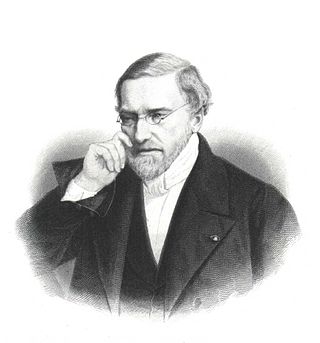
Jean-Victor Poncelet was a French engineer and mathematician who served most notably as the Commanding General of the École Polytechnique. He is considered a reviver of projective geometry, and his work Traité des propriétés projectives des figures is considered the first definitive text on the subject since Gérard Desargues' work on it in the 17th century. He later wrote an introduction to it: Applications d'analyse et de géométrie.
Curie may refer to:
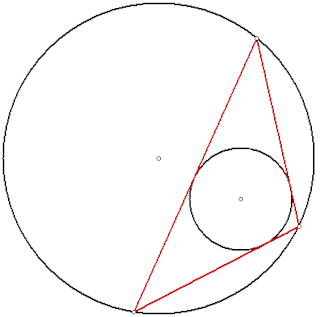
In geometry, Poncelet's closure theorem, also known as Poncelet's porism, states that whenever a polygon is inscribed in one conic section and circumscribes another one, the polygon must be part of an infinite family of polygons that are all inscribed in and circumscribe the same two conics. It is named after French engineer and mathematician Jean-Victor Poncelet, who wrote about it in 1822; however, the triangular case was discovered significantly earlier, in 1746 by William Chapple.

Joseph Diez Gergonne was a French mathematician and logician.
Fredholm is a Swedish surname. Notable people with the surname include:

The Battle of Gabon, also called the Gabon Campaign, occurred in November 1940 during World War II. The battle resulted in forces under the orders of General de Gaulle taking the colony of Gabon and its capital, Libreville, from Vichy France, and the rallying of French Equatorial Africa to Free France.
A cantor a person who leads people in singing or sometimes in prayer.

Raoul Bricard was a French engineer and a mathematician. He is best known for his work in geometry, especially descriptive geometry and scissors congruence, and kinematics, especially mechanical linkages.
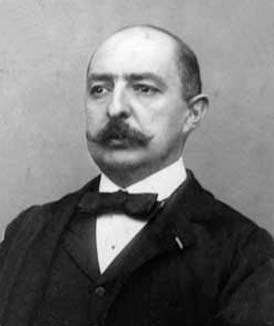
Marie Georges Humbert was a French mathematician who worked on Kummer surfaces and the Appell–Humbert theorem and introduced Humbert surfaces. His son was the mathematician Pierre Humbert. He won the Poncelet Prize of the Académie des Sciences in 1891.

Hendrik Jan Maarten "Henk" Bos is a Dutch historian of mathematics.

HMS Milford was a Shoreham-class sloop of the British Royal Navy built at Devonport Dockyard in 1931–1932. After peacetime operations on the Africa Station during the 1930s, Milford served during the Second World War. Her wartime service between 1939 and 1943 mostly involved convoy escort duties off Africa, but in 1940 she also took part in Operation Catapult and Operation Menace, both targeting Vichy French forces at Dakar, Senegal, and in the Battle of Gabon, in which she damaged the Vichy French submarine Poncelet so severely that Poncelet scuttled herself. After training duty in 1944 and 1945, Milford was placed in reserve in 1946 and sold in 1949.
Finding Ellipses: What Blaschke Products, Poncelet’s Theorem, and the Numerical Range Know about Each Other is a mathematics book on "some surprising connections among complex analysis, geometry, and linear algebra", and on the connected ways that ellipses can arise from other subjects of study in all three of these fields. It was written by Ulrich Daepp, Pamela Gorkin, Andrew Shaffer, and Karl Voss, and published in 2019 by the American Mathematical Society and Mathematical Association of America as volume 34 of the Carus Mathematical Monographs, a series of books aimed at presenting technical topics in mathematics to a wide audience.

Poncelet was a French Navy Redoutable-class submarine of the M6 series commissioned in 1932. She participated in World War II, first on the side of the Allies from 1939 to June 1940, then served in the navy of Vichy France. She was scuttled during the Battle of Gabon in November 1940. Her commanding officer at the time of her loss,Capitaine de corvette Bertrand de Saussine du Pont de Gault, is regarded as a national naval hero in France for sacrificing his life to scuttle her and ensure that she did not fall into enemy hands.